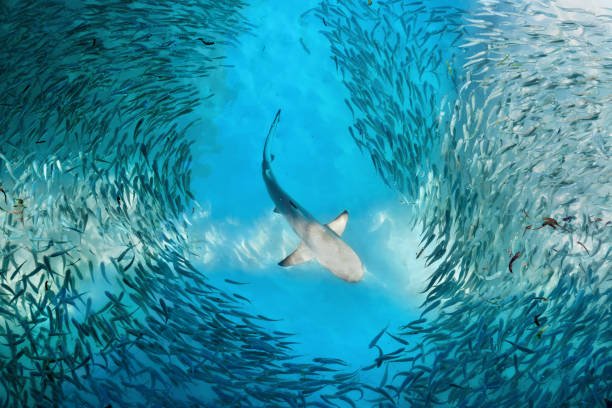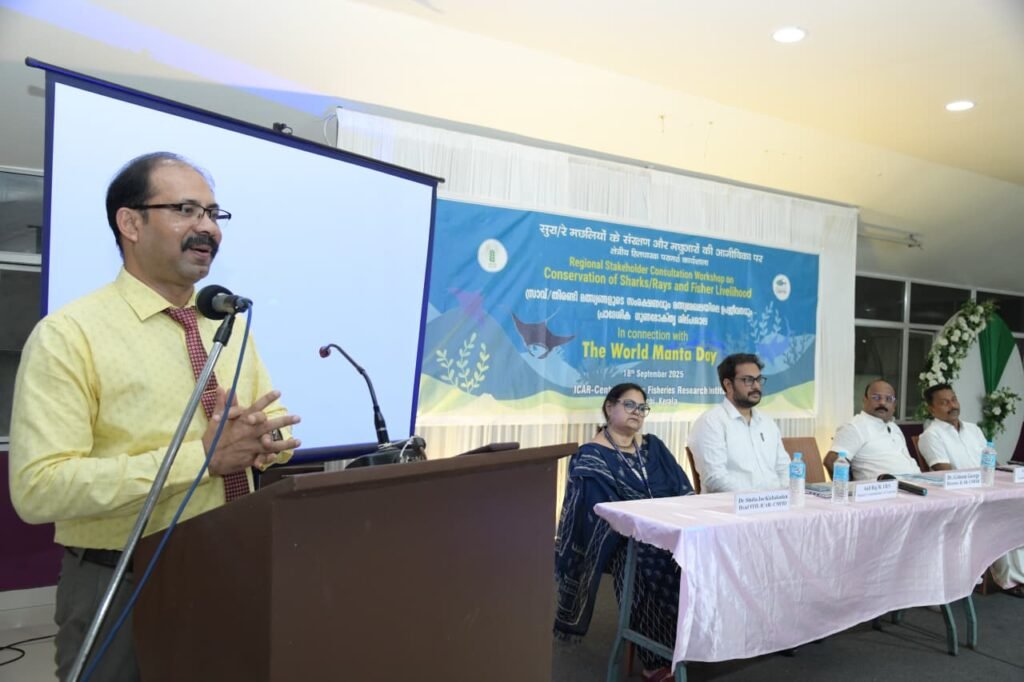Friday, 16 January 2026

The ICAR–Central Marine Fisheries Research Institute (CMFRI) has announced the formation of a special committee to address fishing community concerns over shark fishing and trade following amendments to the Wild Life (Protection) Act, 1972. The move comes in response to rising unease among fishers after numerous species of sharks and rays were brought under different schedules of the Act, triggering stricter controls on catch, trade, and export.
The committee will undertake a scientific study to develop a data-driven, balanced approach to conservation and livelihood security. Its mandate includes examining the biological and ecological status of protected species, as well as assessing the socioeconomic implications of regulatory measures on coastal fishing communities.
Speaking at a stakeholder workshop on shark and ray conservation held on World Manta Day, CMFRI Director Grinson George stressed the need for pragmatic implementation of the Act. He highlighted that incidental bycatch is unavoidable in marine fisheries and that rigid penal measures can create conflict between conservation enforcement and fisher livelihoods.

CMFRI has recently intervened in cases of confusion around the landing of species such as thresher sharks in Tamil Nadu, clarifying that Schedule IV species—aligned with CITES Appendix II—are regulated for international trade but not prohibited for domestic fisheries unless covered under Schedules I or II. As a notified CITES Scientific Authority, CMFRI plays a key role in preparing Non-Detriment Findings (NDFs) to guide trade decisions.
To improve compliance and reduce conflict, CMFRI proposed capacity-building initiatives including training for enforcement agencies and fishers on species identification, community-based monitoring and self-regulation, and regular scientific assessments. The institute stressed that effective conservation requires cooperative action between scientists, policymakers, enforcement agencies, and fishing communities.
The workshop brought together fishers, regulators, and fisheries department officials to deliberate on actionable solutions that balance biodiversity protection with the economic security of millions of coastal families, reinforcing CMFRI’s commitment to science-led, stakeholder-inclusive fisheries governance.